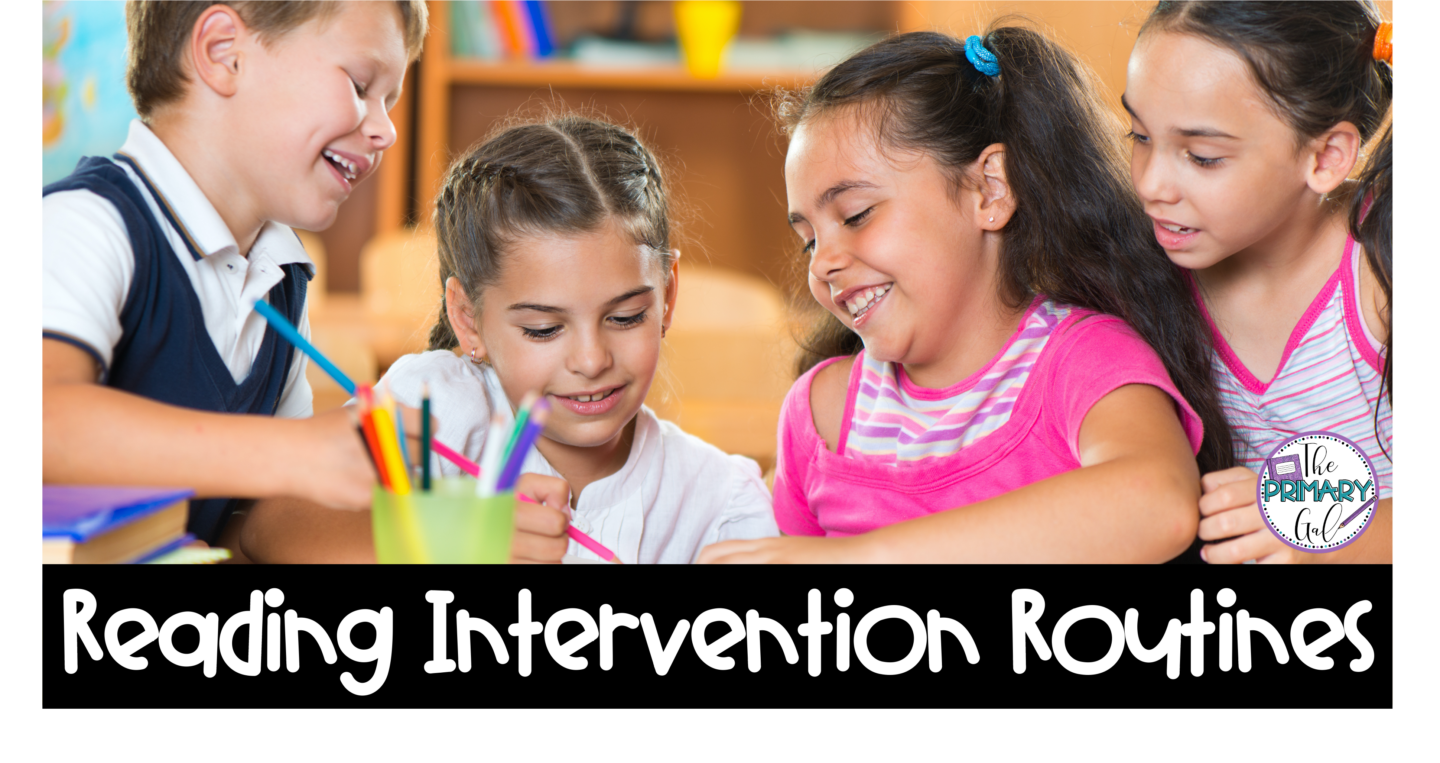
As a brand new special education teacher, I had NO IDEA what I was doing in my resource room. I struggled to know exactly what to do for the longest time.
Through a lot of reading, trainings, and experimenting, I’ve found the perfect solution to helping students cover many skills in one reading intervention group. Through daily routines, I know my students are working on a variety of skills and making progress in each and every area.
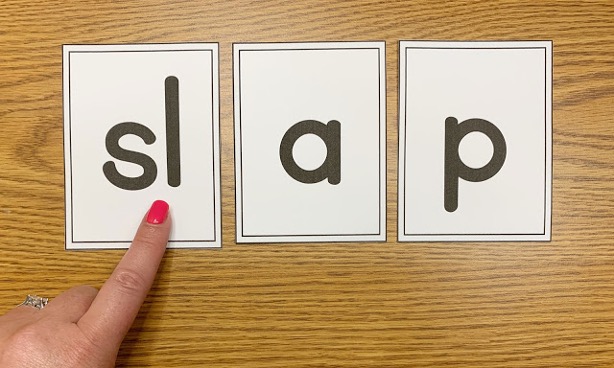
Blending Words
I think it is critical to practice blending words every day. I start with these flash cards. We say the sounds that are on the cards as quickly as we can. Then, I sort them based on the position of the word. Will this sound be at the beginning, the middle, or the end of the word?
Then, we blend words. Some of them are real. Others are nonsense words. Either way, we say the sounds, figure out the word, and try to figure out if it is a real word or a nonsense word. If it is a real word, we give it a thumbs up. If it is a nonsense word, we give it a thumbs down.
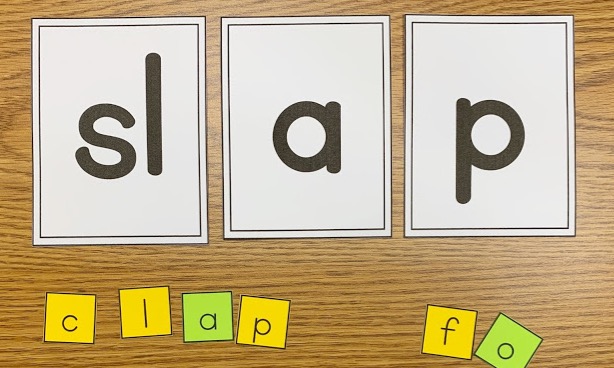
Manipulating Sounds
I’ll warn you, this is initially a very hard skill. But it is important.
We often use a word from our blending board as our first word. Using letter tiles, we build our first word. Then, I give directions to my students to help them manipulate the sounds. For example, I might say, “Change one letter to spell the word CLAP.”
Using these letters, we could also spell, flap, flop, and slop (assuming you also gave them the letter tiles from the initial word, slap).
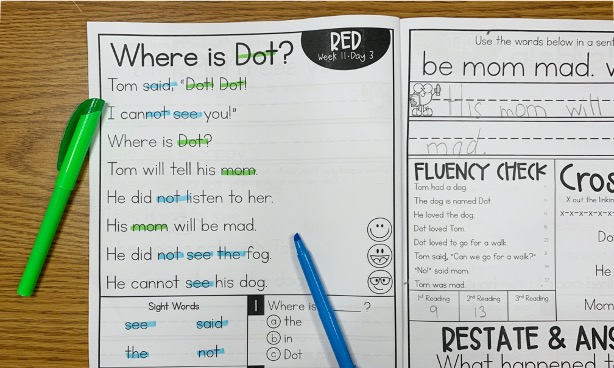
Sight Words
We all know that many of our special education students have a strength in reading sight words. I like to use a multi-sensory approach to reading sight words.
Using the Orton-Gillingham arm tapping strategy, we tap the words.
For the word see, we would stretch out our arm and use the opposite hand to tap the letters in the word. In a sing-songy way, we say, “S, e, e, see. S, e, e, see. S, e, e, See.”
Then, we use our highlighters to hunt for the word. During this time, we discuss endings, like -s, -ed, and -ing.
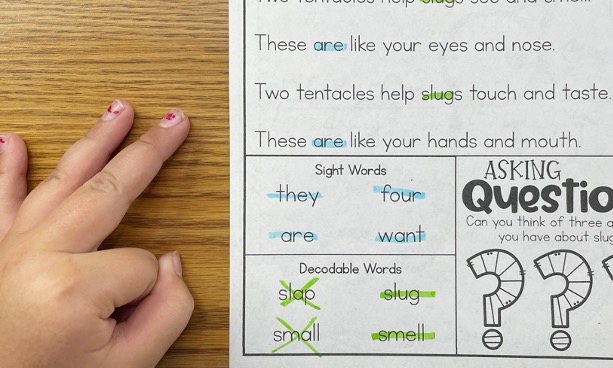
Decoding Words
Using another Orton-Gillingham strategy, we pound our decodable words.
After pounding the word and figuring out what the word is, we use our highlighters to hunt for the words. During this time, we also discuss words that look visually similar and the importance of training your brain to read through the entire word.

Teacher Read Aloud
There are so many benefits to teachers reading aloud. Every one of my groups includes a teacher read aloud. During this time, students are practicing their tracking skills and listening comprehension abilities. It also gives them the opportunity to see, hear, and point to the words in the text.
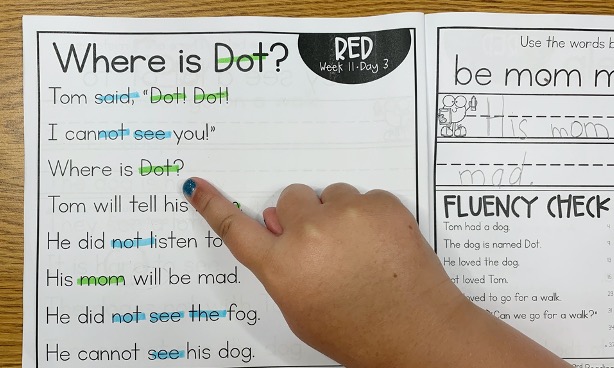
Read Aloud
I also like to have my students read in a variety of ways. It helps them practice so many skills at one time. I especially like that they can practice figuring out our sight words (in blue) and stretching out words that follow our spelling pattern (in green) in a real life, reading situation.
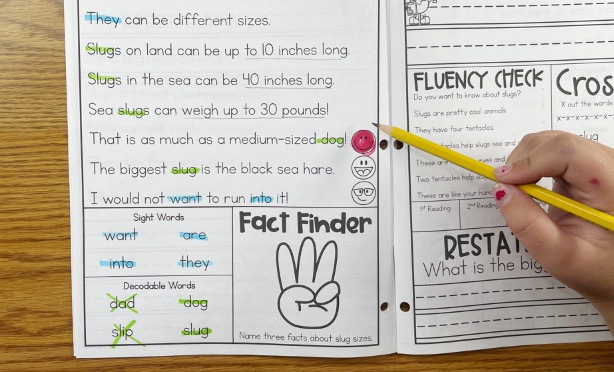
Reading Comprehension
Reading comprehension looks different in each of my reading groups, depending on the reading level. During this time, you can practice answering multiple choice questions, introduce or practice reading skills and strategies, or answer open-ended questions.

Writing
Don’t stop reading! 😂
Writing is such a difficult skill for so many of our special education students. But we have to take time to practice it. You can practice writing those sight words by repeating those sing-songy chants you did during the sight word section as well as pounding out decodable words on their own.
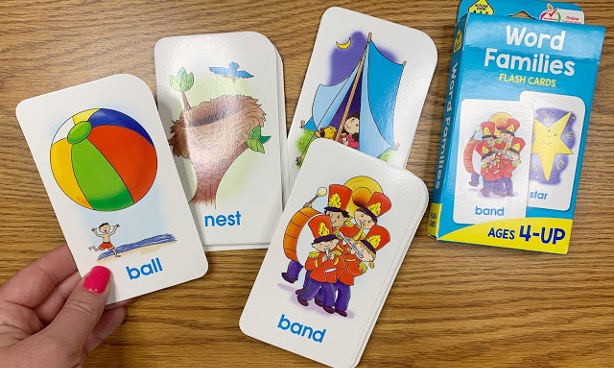
Listening Activities
This is such an underutilized or under-practiced skill. Listening skills, such as rhyming, finding the same beginning sound, or manipulating sounds can be incredibly difficult.
I like to use this cheap set of flash cards to inspire me with the words I need to create listening activities.
With these cards, I might say,
- “Which two words have the same beginning sound?”
- “Do ___ and ____ rhyme?”
- “Can you give me a word with the same beginning sound as ____?”
- “Can you say a word that rhymes with ____?”
- “How many sounds are in the word ____?”
